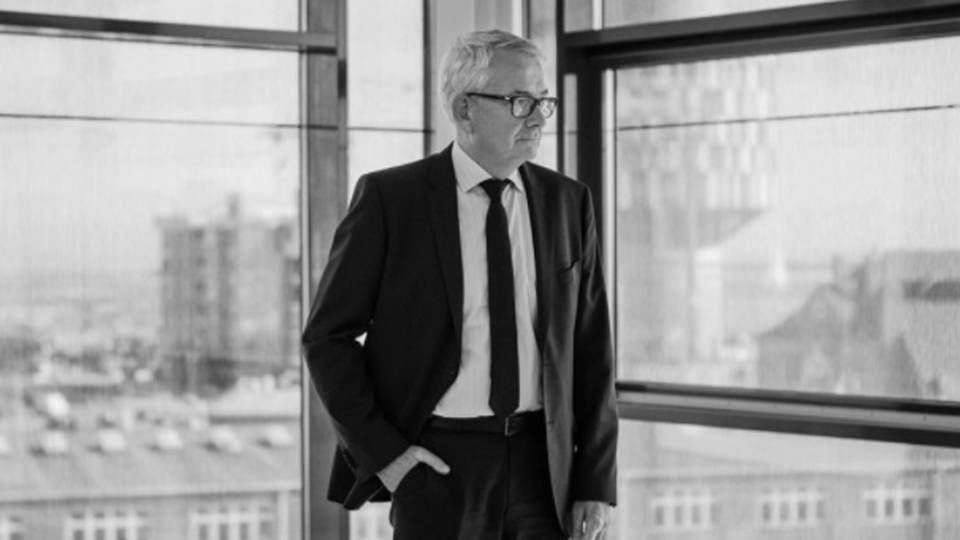"Nerve-racking," says PFA's RE chief of record-breaking buying spree

Danish pension fund PFA, with DKK 600 billion of assets under management, is expanding its property portfolio significantly by closing its biggest property deal to date: 250,000 square meters of mainly residential property divided between 34 units in large German cities.
PFA makes its largest property investment to date
Michael Bruhn, Head of Real Estate at PFA, tells EjendomsWatch that PFA acquired the property as if they were individual assets rather than buying the company owning the assets.
"The process was very streamlined, we had a beauty contest with many contestants that gradually became fewer. It was nerve-racking," says Bruhn.
"We heard that our bid was less than EUR 5 million away from the other bid, which was from a German pension fund," Bruhn says.
"It's nerve-racking, but it gives us comfort in knowing that our bid was not too high. If you write a check that's big enough, you can have it all," he adds.
Seller had different requests
Bruhn tells EjendomsWatch the seller is a fund consisting of 11 German-based savings banks and Industria Wohnen whose owner is Warburg Bank, which dates back to 1798.
According to Bruhn, the seller had different requests and chose to sell in a favorable market.
"We benefit from the very prosperous market trends on behalf of our investors and have chosen an early exit," Klaus Niewöhner-Pape, CEO of Industria Wohnen, said in a company announcement.
Their desire for cashflow was in perfect alignment with PFA's growth plans:
"We've looked to Germany for more than a year and have seen many properties. This portfolio is well managed and generates a stable cashflow. We don't have to do anything about the properties to boost the return," he says.
"We've focused on great cities. We have a little bit in Leipzig, which we'll probably sell, but the properties are located in Munich, Rheinland, Berlin – Germany's most prosperous cities," says Bruhn.
"The down time is 0.2 percent. When we look at the construction projects in Munich compared to the demand, it's crazier than in Copenhagen," he continues.
Building permits for DKK 1 billion extra
Included in the portfolio are building permits for about 50,000 square meters. Not all of that area has been utilized, but it will be, the PFA chief says:
"In Munich they crave rented property, and the local authorities are positive in terms of utilizing the properties as much as possible," says Bruhn and estimates the potential at nearly DKK 1 billion.
"The initial return is low"
Given the condition of the German property combined with the low down time, Bruhn admits that the properties have a high acquisition price and a low initial return:
"We bought the properties without mortgaging or gearing. And of course, if we mortgage the portfolio, we could reach an initial return of about 4.5-4.7 percent. Without mortgage it's 3.50-3.75 percent. The initial return is low, I know, but we have DKK 200 billion that don't generate any return at all, so exchanging seven of them gives us 3.50 percent, which is a great idea."
He compares the property investment to bonds, and there are no less than 3,700 tenants in a portfolio that does not have down time.
As the exposure to foreign property increases, PFA wishes to reduce non-residential property in Copenhagen in partnership with Bankinvest.
"Overall, we're under-exposed in property, and every time I have an idea, our asset management team says: We'd rather have more than less."
Local management services
The management services of the portfolio are outsourced to a partner, the Munich-based Domicil, which is now winning Denmark's number 1 – and Europe's number 5 commercial pension company as a customer.
"The properties are located in very good or attractive residential areas. Furthermore, the portfolio is open for further rent increases," says Kahled Kaisser, CEO of Domicil Real Estate Group, in a company announcement.
"I assume they have 40-50 employees, and more will join. They're highly skilled and have experience from Goldman Sachs and Patrizia, so we will work with them to begin with. In the short term, we don't have plans to establish an organization in Germany," says Bruhn.
The seller's real estate advisors were CBRE and BNP Paribas, and PFA was advised by Gorrissen Federspiel and KPMG.
It is not the first time that Industria Wohnen has sold properties to Danish investors. In the last few years, it sold 90 units to Swedish-based Bonava which also has activities in Denmark.
Industria Wohnen was founded in 1954 and manages 18,000 units, and its total assets amount to EUR 2.3 billion.
English Edit: Lisa Castey Hall Nielsen













